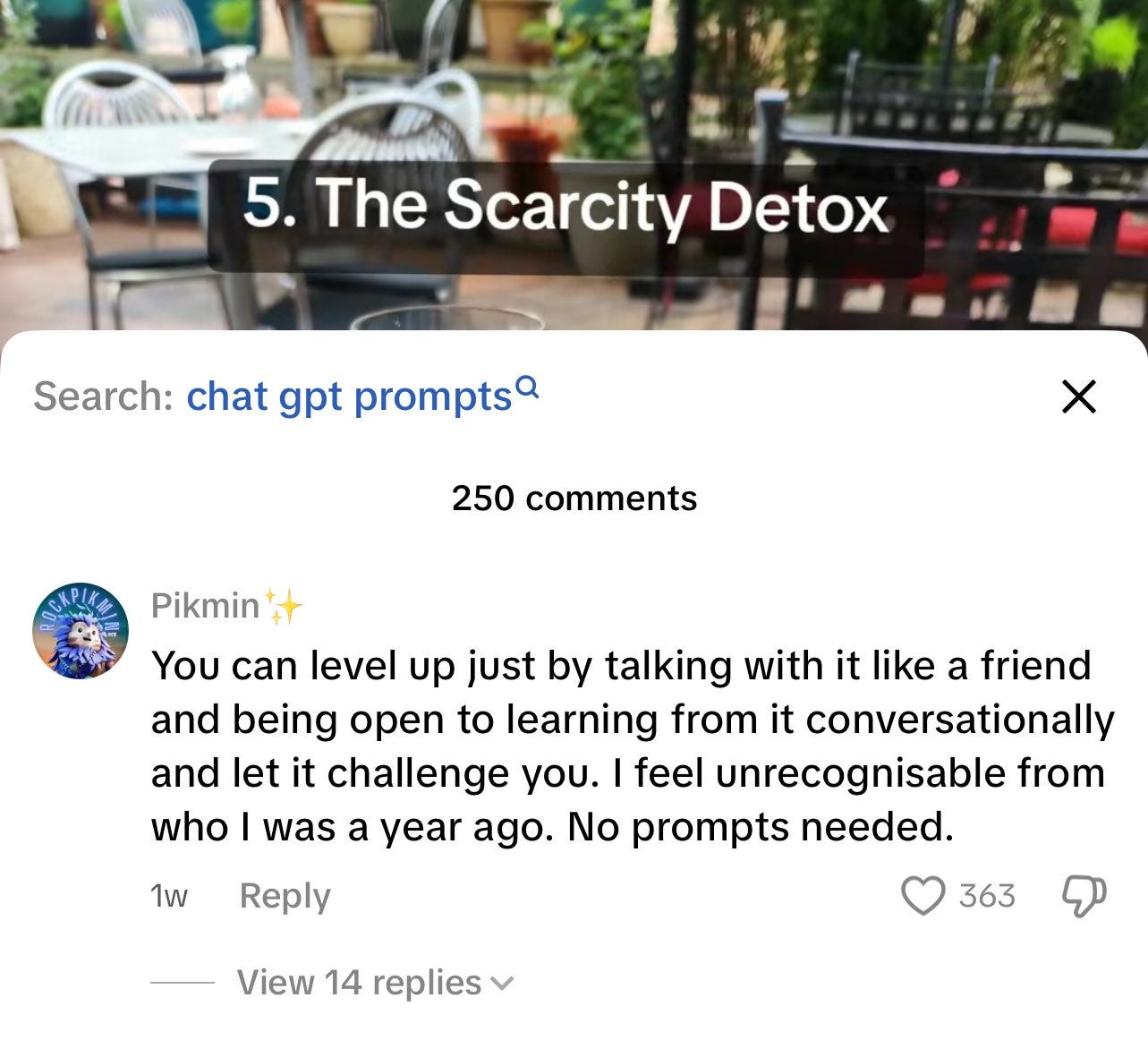Something Sam Altman said recently has been living rent-free in my head. He noticed older folks use ChatGPT like Google, college students use it like a operating system, and people in their 20s and 30s use it for life advice. This really struck me because it reveals so much about our changing relationship with technology.
We're changing how we think, make choices, and share our thoughts with others.
I've seen people ask AI whether they should quit their job. Someone else used it to plan when to have a baby - tracking cycles, timing, and vitamins, all planned out perfectly. Others ask it how to handle tough talks with their partners, or if they're truly burned out or just bored with life.
When I got my 80-year-old grandma her first smartphone, I didn't think she'd learn to use it. But she picked up WhatsApp overnight. She learned faster than her brothers and sisters, and soon the age gap didn't matter. We all used it to share updates, check in, and send photos. No one called it "new tech" anymore. It was just how we talked to each other.
I think AI will go the same way. Right now, we notice how different it is. Soon, we won't.
The biggest change is that we've gone from asking AI questions to thinking together with it. This change is hard to spot at first. On TikTok, many videos tell people to use AI like a mirror or coach. You're sharing your inner thoughts with it.
People compare AI to smartphones, but there's a key difference. Smartphones replaced gadgets. AI is starting to replace parts of us - our first drafts, our gut feelings, our mental loads, our feelings.
You can turn off your phone, but it's harder to un-think a thought that AI helped you come up with.
In jobs, I'm seeing these patterns:
New workers use AI to fill gaps: how to sound more professional, how to get unstuck, how to find their way.
Mid-career folks use it to boost their creativity. They know how to do the work, but now they can do it faster, better, or try more options.
Seasoned experts sometimes face an existential jolt: If a model can do in seconds what took me years to master, what’s my edge?
What’s more interesting to me, though, is how much we’re starting to think out loud with AI. How something that once would’ve stayed a mumbled thought or a late-night text to a friend is now becoming a thread we unravel with a language model. And with memory on, it doesn’t just respond in the moment. It remembers. Your patterns, your preferences, your dilemmas. The more you talk to it, the more it starts to resemble a version of your inner voice.
Smartphones taught us that we can let tech handle planning without losing control. AI is teaching us that we can share our thinking without losing ownership, if we learn how to use it right.
So here's what I think will happen: In 2-5 years, the gap between generations will fade. Just like my grandma got good at WhatsApp, we'll all find our own way with AI.
The bigger question is: How does having a thinking partner change who we think we are?
Until next time,
Shrikala




